第14章 CHAPTER 1(14)
It is but of yesterday that women have either been qualified by literaryaccomplishments or permitted by society, to tell anything to the generalpublic. As yet very few of them dare tell anything, which men, on whom theirliterary success depends, are unwilling to hear. Let us remember in whatmanner, up to a very recent time, the expression, even by a male author,of uncustomary opinions, or what are deemed eccentric feelings, usually was,and in some degree still is, received; and we may form some faint conceptionunder what impediments a woman, who is brought up to think custom and opinionher sovereign rule, attempts to express in books anything drawn from thedepths of her own nature. The greatest woman who has left writings behindher sufficient to give her an eminent rank in the literature of her country,thought it necessary to prefix as a motto to her boldest work, "Un hommepeut braver l'opinion; une femme doit s'y soumettre." (1*) The greaterpart of what women write about women is mere sycophancy to men. In the caseof unmarried women, much of it seems only intended to increase their chanceof a husband. Many, both married and unmarried, overstep the mark, and inculcatea servility beyond what is desired or relished by any man, except the veryvulgarest. But this is not so often the case as, even at a quite late period,it still was. Literary women I are becoming more free-spoken, and more willingto express their real sentiments. Unfortunately, in this country especially,they are themselves such artificial products, that their sentiments are compoundedof a small element of individual observation and consciousness, and a verylarge one of acquired associations. This will be less and less the case,but it will remain true to a great extent, as long as social institutionsdo not admit the same free development of originality in women which is possibleto men. When that time comes, and not before, we shall see, and not merelyhear, as much as it is necessary to know of the nature of women, and theadaptation of other things to it.
I have dwelt so much on the difficulties which at present obstruct anyreal knowledge by men of the true nature of women, because in this as inso many other things "opinio copiae inter maximas causas inopiae est";and there is little chance of reasonable thinking on the matter while peopleflatter themselves that they perfectly understand a subject of which mostmen know absolutely nothing, and of which it is at present impossible thatany man, or all men taken together, should have knowledge which can qualifythem to lay down the law to women as to what is, or is not, their vocation.
Happily, no such knowledge is necessary for any practical purpose connectedwith the position of women is relation to society and life. For, accordingto all the principles involved in modern society, the question rests withwomen themselves -- to be decided by their own experience, and by the useof their own faculties. There are no means of finding what either one personor many can do, but by trying -- and no means by which anyone else can discoverfor them what it is for their happiness to do or leave undone.
One thing we may be certain of -- that what is contrary to women's natureto do, they never will be made to do by simply giving their nature free play.
The anxiety of mankind to interfere in behalf of nature, for fear lest natureshould not succeed in effecting its purpose, is an altogether unnecessarysolicitude. What women by nature cannot do, it is quite superfluous to forbidthem from doing. What they can do, but not so well as the men who are theircompetitors, competition suffices to exclude them from; since nobody asksfor protective duties and bounties in favour of women; it is only asked thatthe present bounties and protective duties in favour of men should be recalled.